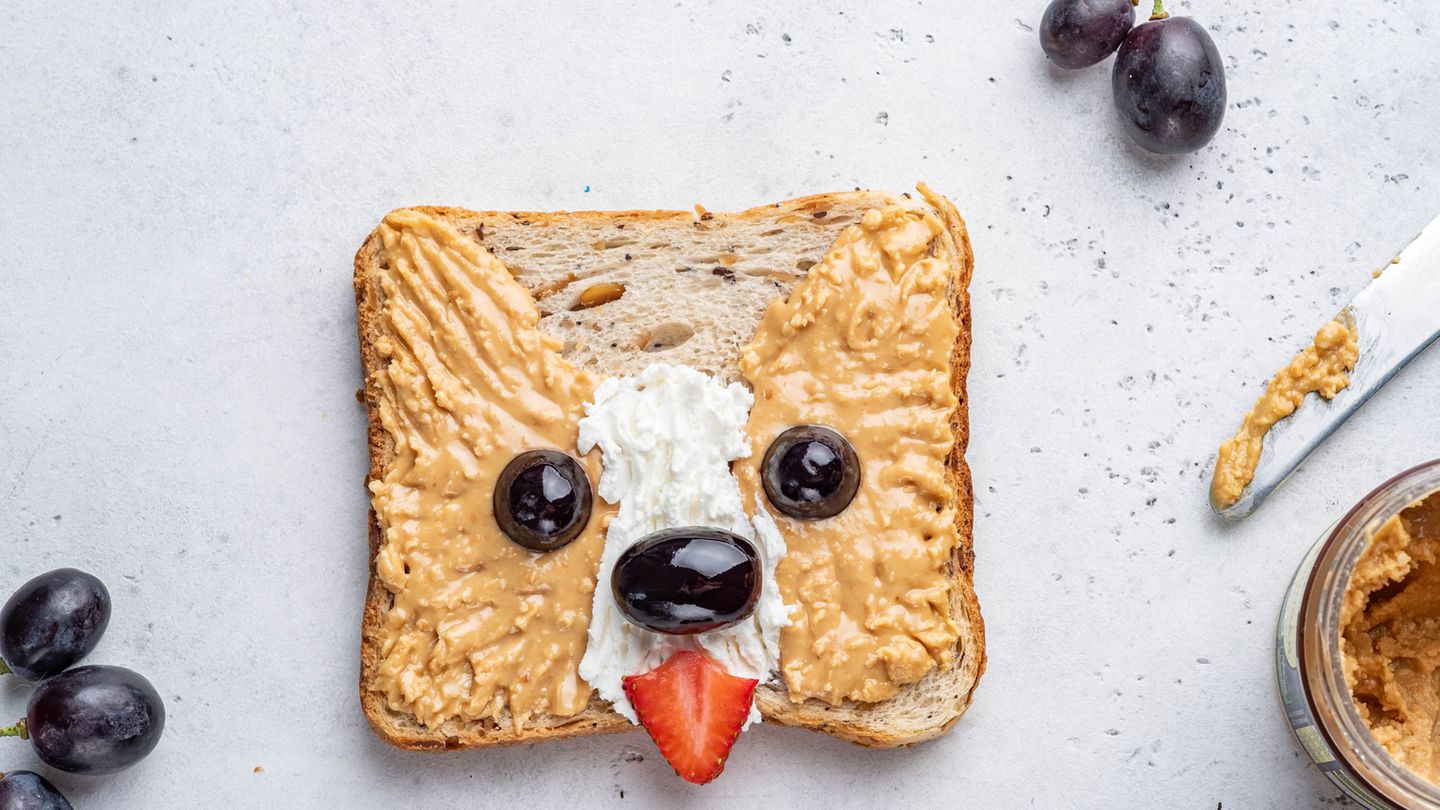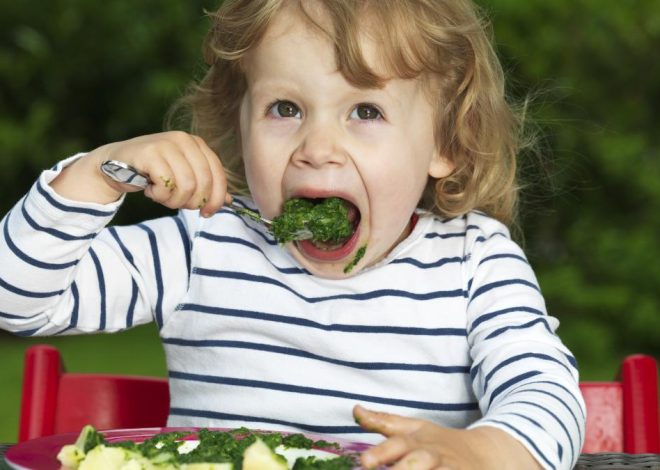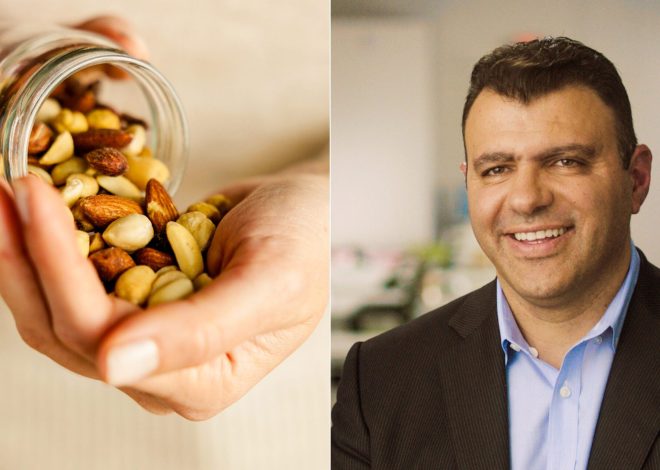
Goodbye peanut allergy: How to protect your children effectively
For years it was thought that children prone to allergies should avoid peanut products. Now a study shows the opposite: early habituation can protect against allergies – in the long term
The results of this long-term study turn previous recommendations on how to deal with allergies on their head: Early contact with peanut protein in the first year of life significantly reduces the risk of a peanut allergy – at least until adolescence. Children who come into contact with the food at a very early age therefore have a more than 70 percent lower risk of developing this allergy in the long term than children who do not receive such products. This is reported by a research team from Great Britain and the USA in the specialist magazine “NEJM Evidence”.
“The data is clear,” stresses study leader Gideon Lack from King’s College London. “Early introduction of peanuts in childhood leads to long-term tolerance and protects children from allergies into adolescence.” This practice could therefore prevent more than 100,000 cases of peanut allergies worldwide every year.
In Germany, about 0.4 percent of children aged up to two years are affected
“This study confirms that eating peanut products at an early age and regularly enables a stable tolerance,” says Kirsten Beyer. In Germany, around 0.4 percent of children up to the age of two are affected by such an allergy, explains the head of the Children’s Allergology Study Center at Berlin’s Charité – significantly fewer than in the USA, Australia or Great Britain, where peanut products are much more common. The symptoms can range from tingling and hives to vomiting and breathing difficulties to a life-threatening anaphylactic reaction. The allergy usually begins in the first three years of life and usually lasts a lifetime.
For a long time, experts recommended that parents keep children who are particularly at risk away from the food. “Decades of advice to avoid peanuts have made parents afraid to give their children peanuts at a young age,” says Lack. He suspects that this avoidance may even have contributed to the increase in allergies. This is also the view of Berlin expert Beyer.
The previous study caused a rethink
The study that has now been published is a long-term continuation of the so-called LEAP study (Learning Early About Peanut Allergy), the first results of which were published in 2015 – and which caused a huge stir and a rethink in the professional world. At the time, more than 640 babies aged 4 to 11 months who had atopic dermatitis or a severe allergy to chicken egg protein – and were therefore considered particularly at risk – were included. Children with a strong suspicion of an existing peanut allergy were excluded.
Half of the children regularly consumed peanut protein in the form of puree or powder up to the age of five – at least six grams of peanut protein per week – while the other half did not. Without contact with the food, more than one in six children (17.3 percent) developed a peanut allergy, whereas with contact the figure was only 3.2 percent. This corresponds to a risk reduction of 81 percent.
Allergist Anthony Fauci, then director of the US National Institute of Allergy and Infectious Diseases (NIAID), called the magnitude of the results for preventing a peanut allergy unprecedented: “The results have the potential to revolutionize our approach to preventing food allergies.” The agency revised its recommendations for dealing with a peanut allergy. In Germany, too, the guidelines were adjusted at the time, says Beyer. “That turned the world upside down.” “That was the most important study on food allergies in the last decade,” says Lars Lange from the allergy outpatient clinic at the GFO Clinics in Bonn.
“It turned the world upside down.”
“This was the most important study on food allergies in the last decade,” says Lars Lange from the allergy outpatient clinic at the GFO clinics in Bonn. “It turned the world upside down.”
In the now published follow-up study – called LEAP-Trio – a total of around 500 of the original participants were allowed to eat peanuts as they wished from the age of six – regardless of whether they had avoided their ingredients in the first part of the study or not. The result: At the age of 13, a good 15 percent of the approximately 250 children who had previously avoided peanuts still had such an allergy. In the consuming group, the figure was only a good 4 percent.
The protective effect had weakened slightly in the meantime, but was still at 71 percent. The team explains that the preventive effect was somewhat weaker because nine children from the original abstinence group tolerated the food in the meantime. Only one of the children who had already had contact with peanut products developed an allergy to them after the age of 6.
The protective effect applied regardless of whether and how much peanut products the children ate during the study period. This means that a tolerance acquired in early childhood persists even if there is no long-term contact with a food later on.
Be careful, unhealthy!
Children’s food: Parents should take a closer look at these products
“This is a safe and highly effective measure that can be implemented from the age of four months,” says lead author George Du Toit, also from King’s College. “The toddler must be developmentally ready for solid foods.” Peanuts should be introduced as a soft, pureed porridge, for example.
Under no circumstances, warns Bonn allergist Lange, should small children be given whole peanuts. In Australia, the results of the LEAP study led to an increased number of hospital treatments for children who had peanuts and other nuts in their windpipe in the years that followed, as researchers from Melbourne reported in the “Journal of Allergy and Clinical Immunology” in 2021.
“Feed your child what you eat at home”
Allergist Beyer advises that infants at risk, for example those with atopic dermatitis – if they live in a family that regularly eats peanut products – should be offered child-friendly peanut products with their supplementary food. And, she stresses, this should be done regularly: “If you only offer it rarely, then it’s better not to do it at all,” she says. “Continuous exposure is important.” However, a peanut allergy should be ruled out beforehand. The pediatrician can determine this by conducting a blood test for allergy antibodies to peanuts.
Regardless of the food, the expert recommends: “Feed your child what you eat at home – and do so regularly.” This also applies to chicken eggs. An allergy to these is much more common in Germany than a peanut allergy – around 2 percent of children are affected. Here, says Beyer, children should not be given eggs soft-boiled or scrambled, but baked or heated through.

Ethel Purdy – Medical Blogger & Pharmacist
Bridging the world of wellness and science, Ethel Purdy is a professional voice in healthcare with a passion for sharing knowledge. At 36, she stands at the confluence of medical expertise and the written word, holding a pharmacy degree acquired under the rigorous education systems of Germany and Estonia.
Her pursuit of medicine was fueled by a desire to understand the intricacies of human health and to contribute to the community’s understanding of it. Transitioning seamlessly into the realm of blogging, Ethel has found a platform to demystify complex medical concepts for the everyday reader.
Ethel’s commitment to the world of medicine extends beyond her professional life into a personal commitment to health and wellness. Her hobbies reflect this dedication, often involving research on the latest medical advances, participating in wellness communities, and exploring the vast and varied dimensions of health.
Join Ethel as she distills her pharmaceutical knowledge into accessible wisdom, fostering an environment where science meets lifestyle and everyone is invited to learn. Whether you’re looking for insights into the latest health trends or trustworthy medical advice, Ethel’s blog is your gateway to the nexus of healthcare and daily living.



